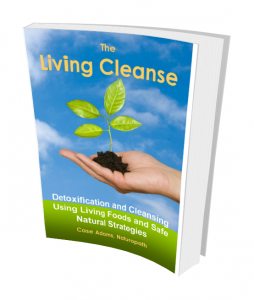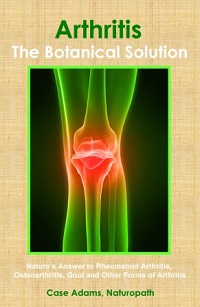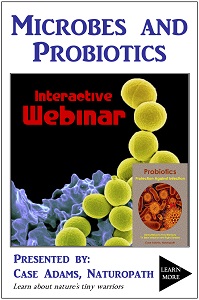How to Reduce Pesticides and Heavy Metals from Chinese Herbs

Chinese herbs and heavy metals.
New research is confirming that many conventionally-grown Chinese herbs are contaminated with pesticide residues and heavy metals. Does this mean we should forget about Chinese Medicine? Hardly. Here are the facts, and what we can do about it.
Several studies have now confirmed what many of thought: That many Chinese herbs from China are contaminated with both.
In this article
Pesticides found in Chinese herbs
A new study funded by Greenpeace last year collected 36 samples of herbal medicines imported from China. Samples were taken from Germany, the UK, France, Italy, the Netherlands, Canada and the U.S. – mostly different brands.
Of the 36 samples, 32 contained chemical residues from three or more pesticides. Some of the samples contained as many as 26 pesticides. This was the case for the “Coconut Tree” branded honeysuckle herb product. Of these 26, nine pesticides were at levels higher than the “maximum recommended limits” for that pesticide as established by the European Union (EU MRLs).
Overall there were 26 different types of pesticides among the samples – some pesticides that have been banned for use in the U.S. and E.U. countries.
In fact, 17 of the 36 samples contained pesticide residues that are considered by the World Health Organization as either class 1a or class 1b – “extremely hazardous” or “highly hazardous.” These are known to produce an acute health risk.
These 1a or 1b class pesticides included Phorate, Ethoprophos, Carbofuran, Omethoate, Methamidophos, Methomyl and Triaophos. 10 of the 36 samples tested contained Carbofuran – considered not only toxic to consumers, but unborn babies.
The point of the study wasn’t to show that Chinese herbs are the biggest source of pesticide residues. As the Greenpeace study showed, 3,271 acute pesticide poisonings occurred among farmers between 1998 and 2005. And many of our conventional foods from the U.S. will contain multiple pesticides as well.
But U.S. grown produce also contains pesticides
And the insulting thing about these pesticides is that many of them come from U.S.-based companies and manufacturers.
In 2009, a study from the University of California at Davis, researchers analyzed pesticide residues among imported and domestically-grown fruits and vegetables as monitored by the USDA. They found residues for 15 pesticides on both the imported and domestically grown produce.
Furthermore, the researchers found that the domestic produce was higher in 11 of the pesticides than the imported produce, while the imported produce was higher for the other four pesticides. And the five pesticides with the highest residues all came from the U.S. produce.
So it is not as if the author, or Greenpeace is pointing fingers at any particular country. The issue is whether or not we should be buying – and thereby importing – Chinese medicinal herbs contaminated with pesticides.
Certainly not.
How to reduce pesticide residues
The reality is that just as the U.S. has a burgeoning organic supply chain, and practically every fruit, vegetable and grain can be purchased as organic, China also has a growing organic supply network.
Yes, the demand for organic foods has extended to medicinal herbs, and there are numerous suppliers from both the U.S. and China that are providing organically grown medicinal herbs.
These are found simply by asking your herb expert at your local health food store – as health food stores are now specialists in supplying organic foods and herbs.
Yes, the health food store network in the U.S. have become specialists in the supply of organic foods.
As to doubts that possibly some organic foods and herbs still contain pesticides, yes this is certainly possible, and Realnatural will report on this soon. But the organic industry is not only federally restricted – and it is a federal crime to claim something is organic when it isn’t. The organic industry is also self-regulated. This means that organic suppliers all have to become compliant with independent certifiers, and these independent certifiers are licensed by the USDA.
These certifiers are also responsible for their own industry reputation. As such, they will inspect suppliers and they will sometimes even run pesticide residue tests. These third-party certifiers are also responsible for certifying foreign suppliers that import organic foods into the U.S.
What about heavy metal content?
Many still are concerned about Chinese-grown medicinal herbs having high heavy metal content and rightly so.
Boston hospital researchers conducted a study that analyzed and compared the blood levels of lead among herb users. They compared the lead levels of 6,712 U.S. women and 6,095 men, and then compared those who took herbs regularly with those who did not.
The study found that women taking herbal supplements had an average of 10% higher blood levels of lead. And those women who were taking Chinese herbs had 24% higher lead levels, and those who were taking Ayurvedic herbs had 23% higher blood levels of lead.
But interestingly, there was no difference between in lead values of the men – indicating of course that men appear to metabolize lead differently, which has also been indicated in other research.
As lead is one of several heavy metals to be concerned about including cadmium and arsenic, higher levels of lead are often accompanied by higher levels of cadmium, arsenic and others – and this has been proven out in other studies.
This is primarily because these heavy metals are often absorbed into soils from airborne pollutants. And airborne pollution is significant in today’s China.
This doesn’t mean that Chinese herbs in themselves are polluted. It depends upon where they are grown. This was proven in a 2002 from researchers from the University of California, who tested Chinese medicinal herbs grown in Sacramento by Laotian refugees – who grew their own medicinal herbs in home gardens.
The researchers tested for arsenic, cadmium, lead and chromium among the herbal samples. They concluded:
“we found no detectable levels”
Heavy metals in herbs
USDA organic laws do not regulate heavy metal content. While third-party certifiers may do soil residue testing, it is neither mandatory nor market prevailing.
What this says is that while even organic herbs grown in China may have toxic heavy metal levels, depending upon where they are grown, they may still contain heavy metals – just as found from the study discussed above.
This can be ameliorated if the brand also does heavy metal testing. Many of the more reputable and conscious companies do provide heavy metal testing periodically, and will provide that to consumers upon request. We have to remember that China is a big country, and there are vast regions that have minimal pollution, and their soils are relatively clean of heavy metals.
But as the UC study reveals, Chinese medicinal herbs can be grown in the U.S. and assuming good soil, heavy metal content can be significantly reduced or minimal.
Today there are a number of suppliers of Chinese and Ayurvedic herbs that are grown in the U.S. Some of the most reputable brands also own large tracts of land and grow nearly all their own herbs – including Chinese and Ayurvedic herbs. Here is an example of a supplier of organic herbs grown in the US.
Furthermore, there are a number of medicinal herbal nurseries that supply seeds, seedlings, and transplantable plants that we can plant in our own garden or pot at home.
In other words, let’s say that a person has a condition and finds that three Chinese herbs have been found to treat that condition. They may order the seeds or plants and grow those three herbs at home – using them as prescribed by their personal health professional of course. Here is an example of a nursery that supplies Chinese medicinal plants for home-cultivation:
Or a person can simply contact a U.S. supplier of organic herbs grown in clean soils in the USA or other parts of the world, and order the herbs or extracts from them.
The bottom line is that we shouldn’t throw the baby out with the bathwater, so to speak. We simply have to be a little more careful checking where our herbs come from. To decide not to utilize herbal medicine just because some of it is grown with pesticides or among soils laced with heavy metals would be short-sighted.
REFERENCES:
Chinese Herbs: Elixir of Health or Pesticide Cocktail? 2013. Acc. Jan. 17, 2014
Corlett JL, Clegg MS, Keen CL, Grivetti LE. Mineral content of culinary and medicinal plants cultivated by Hmong refugees living in Sacramento, California. Int J Food Sci Nutr. 2002 Mar;53(2):117-28.
Buettner C, Mukamal KJ, Gardiner P, Davis RB, Phillips RS, Mittleman MA. Herbal supplement use and blood lead levels of United States adults. J Gen Intern Med. 2009 Nov;24(11):1175-82. doi: 10.1007/s11606-009-1050-5.
Chan TY, Critchley JA. Usage and adverse effects of Chinese herbal medicines. Hum Exp Toxicol. 1996 Jan;15(1):5-12.
Olori A, Campopiano A, Cannizzaro A, Basili F. A study on the transfer of heavy methals released by Chinese commercial products. G Ital Med Lav Ergon. 2013 Apr-Jun;35(2):69-72.


















